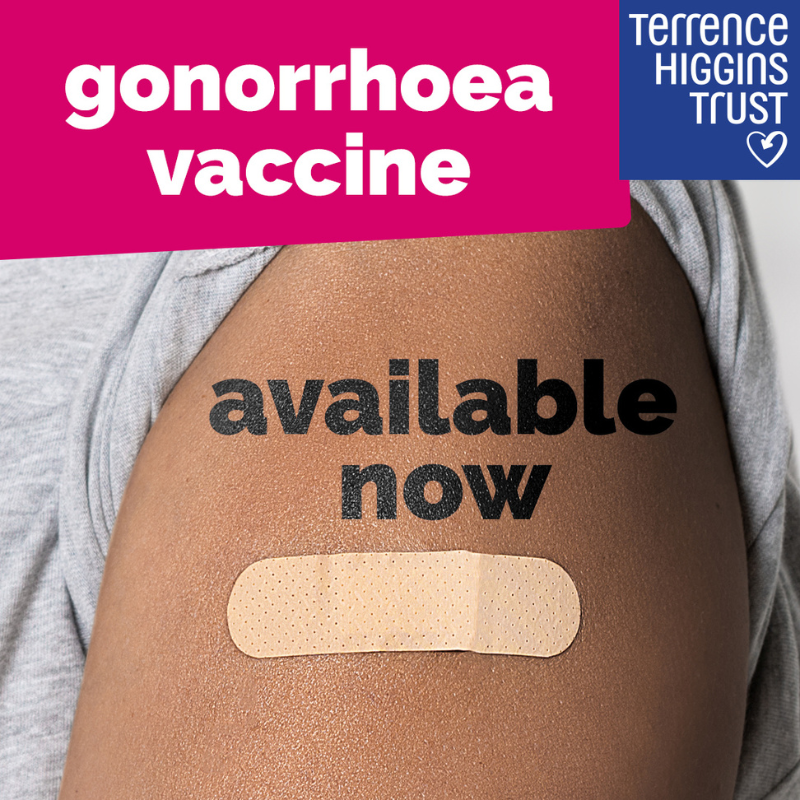
People considered more likely to get gonorrhoea are now being offered a vaccine (MenB) that helps protect against gonorrhoea.
Gonorrhoea is a sexually transmitted infection (STI) which if untreated can cause serious problems such as testicle and prostate infections, and infertility.
The MenB vaccine has been used in the UK routine immunisation programme for babies to prevent meningococcal disease since 2015, and has been proven to be effective for gonorrhoea.
How effective is the vaccine?
The vaccine is effective at reducing your chances of getting gonorrhoea and passing it on to other partners.
It offers between 32 and 42% protection against gonorrhoea.
It is estimated that if it is rolled out widely the vaccine could cut the numbers of people getting gonorrhoea by over a third, preventing 100,000 cases of gonorrhoea over the next decade. This means that there will be much less chance of coming into contact with gonorrhoea and picking up the infection.
You’ll need two doses, given by injection in your upper arm or thigh, to get the best protection from the MenB vaccine. The doses must be taken at least four weeks apart.
It takes at least two weeks after your second dose for the vaccine to give you a good level of protection.
Who can get it?
At the moment, the vaccine is primarily offered to gay, bisexual and other men who have sex with men (GBMSM) considered more likely to get an STI across England, Scotland and Wales.
It also can be offered to anyone else considered more likely to get gonorrhoea. To make the decision on who gets the vaccine, sexual health clinicians will consider criteria that may include but not be limited to:
- people with a current or recent bacterial STI (for example, gonorrhoea, chlamydia or syphilis)
- people reporting sex with multiple partners without STI protection.
People living with HIV can have the vaccine. (As with any vaccine, response may be lower if your immune system is suppressed.)
If you’re pregnant or breastfeeding, or thinking about getting pregnant, talk to a clinician first to check if it’s right for you.
Side effects
Most side effects of the vaccine are mild and short-lived. They can include:
- soreness or swelling where the injection was given
- achy joints or muscles
- headache, nausea or feeling generally unwell.
Severe allergic reactions are very rare, and you can get advice on how to manage any side effects when you get vaccinated.
How do I get the vaccine?
The vaccine is available at sexual health services. You might be offered it when you attend for testing or treatment, or you can contact your local clinic to ask about it. Some clinics have the option for you to book a vaccine online.
Can I have the MenB vaccine alongside other vaccines?
You can get vaccinated for gonorrhoea at the same time as other vaccines offered in sexual health clinics, including vaccines for mpox, hepatitis A and hepatitis B, and HPV.

